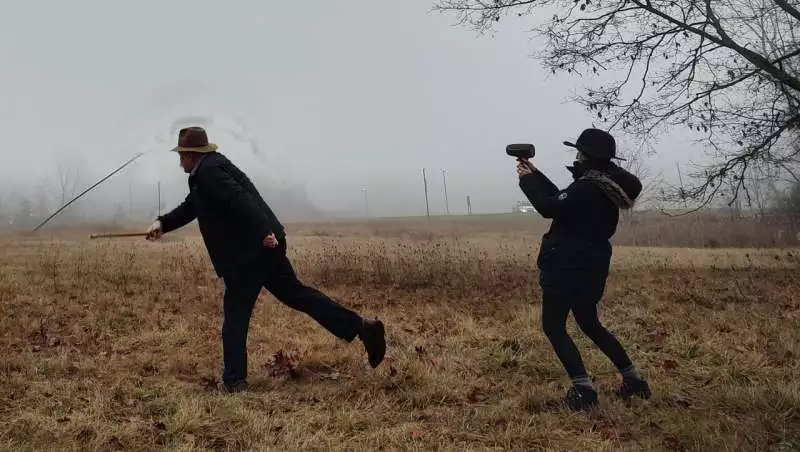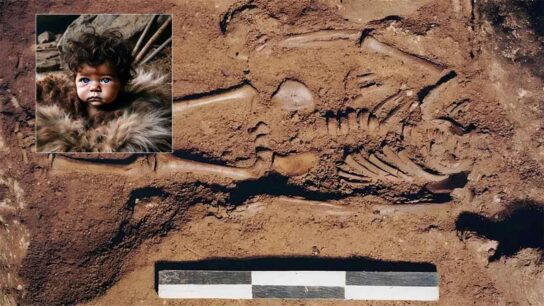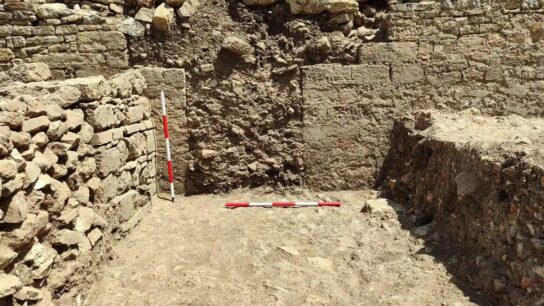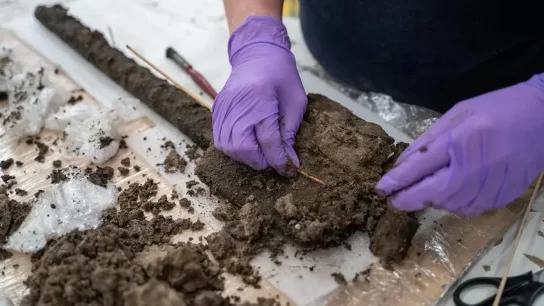Atlatl weapon use by prehistoric females equalized the division of labor while hunting, experimental study shows
An ancient weapon known as an atlatl may have been used by prehistoric women to launch projectiles with the same force as men, thereby enabling them to take over hunting duties.
Watching a group of students operate the archaic spear-thrower in a field, researchers found that the atlatl “equalized” the performance of male and female throwers, suggesting that the atlatl might have compensated for the smaller size of ancient women.

“The atlatl is a straightforward yet sophisticated weapon delivery system consisting of a handheld, rod-shaped device which is used to propel a lightweight spear, referred to as a dart,” explain the researchers.
“One hypothesis for forager atlatl adoption over its presumed predecessor, the thrown javelin, is that a diverse array of people could achieve equal performance results, thereby facilitating inclusive participation of more people in hunting activities.”
To test this hypothesis, the study authors asked 108 of their students and locals to throw a javelin 10 times, followed by 10 launches using an atlatl.
Overall, male students threw the javelin at a velocity of between 8.1 and 16.1 meters per second (26.6 to 52.8 feet per second), while females achieved a speed of 5.1 to 11.5 meters per second (16.7 to 37.7 feet per second).
However, when using the atlatl, male participants were able to launch their projectile at 10.1 to 24.1 meters per second (33.1 to 79.1 feet per second), while females scored within a similar range of 10.1 to 20.1 meters per second (33.1 to 66 feet per second).
“Our results show that, unlike the javelin, the atlatl equalizes the velocity of female- and male-launched projectiles,” write the researchers.
They, therefore, conclude that, at some point in the distant past, “a transition from the thrown javelin to the atlatl and dart would have permitted a unification, rather than division, of labor by allowing more, and different, people to participate in hunting behaviors.”
Describing the field experiments in a statement, study author Michelle Bebber explained that “often males became frustrated because they were trying too hard and attempting to use their strength to launch the darts.”
“However, since the atlatl functions as a simple lever, it reduces the advantage of male’s generally greater muscle strength”.
Noting the disproportionate advantage that the weapon brings to women, Bebber said that “it is certainly within the realm of possibility that in some contexts females invented the atlatl.”
Such an insight transforms our understanding of gender roles and responsibilities in hunter-gatherer societies, suggesting that it wasn’t just men who went out in search of meat.
“Many people tend to view women in the past as passive and that only males were hunters, but increasingly that does not seem to be the case,” said Bebber.
“Indeed, and perhaps most importantly, there seems to be a growing consilience among different fields – archaeology, ethnography, and now modern experiments – that women were likely active and successful hunters of game, big and small.”
The study is published in the journal Scientific Reports.




